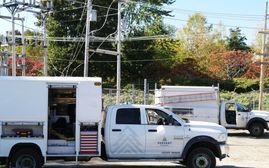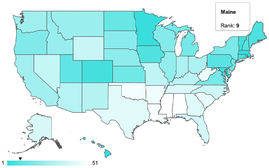Processing Your Payment
Please do not leave this page until complete. This can take a few moments.
- News
-
Editions
-
- Lists
-
Viewpoints
-
Our Events
-
Event Info
- Women's Leadership Forum 2025
- On the Road with Mainebiz in Bethel
- Health Care Forum 2025
- On The Road with Mainebiz in Greenville
- On The Road with Mainebiz in Waterville
- Small Business Forum 2025
- Outstanding Women in Business Reception 2025
- On The Road with Mainebiz in Bath
- 60 Ideas in 60 Minutes Portland 2025
- 40 Under 40 Awards Reception 2025
- On The Road with Mainebiz in Lewiston / Auburn
- 60 Ideas in 60 Minutes Bangor 2025
Award Honorees
- 2025 Business Leaders of the Year
- 2024 Women to Watch Honorees
- 2024 Business Leaders of the Year
- 2023 NextUp: 40 Under 40 Honorees
- 2023 Women to Watch Honorees
- 2023 Business Leaders of the Year
- 2022 NextUp: 40 Under 40 Honorees
- 2022 Women to Watch Honorees
- 2022 Business Leaders of the Year
-
-
Calendar
-
Biz Marketplace
- News
- Editions
- Lists
- Viewpoints
-
Our Events
Event Info
- View all Events
- Women's Leadership Forum 2025
- On the Road with Mainebiz in Bethel
- Health Care Forum 2025
- On The Road with Mainebiz in Greenville
- On The Road with Mainebiz in Waterville
- + More
Award Honorees
- 2025 Business Leaders of the Year
- 2024 Women to Watch Honorees
- 2024 Business Leaders of the Year
- 2023 NextUp: 40 Under 40 Honorees
- 2023 Women to Watch Honorees
- 2023 Business Leaders of the Year
- + More
- 2022 NextUp: 40 Under 40 Honorees
- 2022 Women to Watch Honorees
- 2022 Business Leaders of the Year
- Nomination Forms
- Calendar
- Biz Marketplace
March 12, 2012
LePage unveils four energy bills
Gov. Paul LePage has unveiled four pieces of legislation aimed at reducing energy costs and expanding options for Mainers. In a press release, LePage said the bills would also help entice more business creation in Maine.
The four pieces of legislation are:
- An Act to Lower the Price of Electricity for Maine Consumers, which would remove the 100-megawatt cap for qualifying renewable generation, specifically hydro power. Currently, hydro power under 100 megawatts is considered renewable, but hydro power above that limit is not. The move would help lower rates, according to the governor.
- An Act to Provide Transparency in Electricity Pricing for Maine Ratepayers, which would require the Maine Public Utilities Committee and the Office of the Public Advocate to submit budgets based on a "zero-based budget approach." It also requires the PUC and OPA websites to show the cost of various fees and charges on electricity.
- An Act to Improve Efficiency Maine Trust Programs to Reduce Heating Costs and Provide Energy Efficient Heating Options for Maine's Consumers. The bill would expand the existing voluntary Renewable Resource Fund to allow contributions to energy efficiency, and funds could be used by the Efficiency Maine Trust. It also establishes a home-heating equipment rebate program of 5% for qualified systems and provides new opportunities for consumers to access efficient alternative-energy systems. Under this legislation, the Efficiency Maine Trust would submit a budget for approval by the Legislature.
- An Act to Change the Name of the Governors' Office of Energy Independence and Security: The name of the office would change to the "Governor's Energy Office." Efficiency Maine Trust funds would support it. A position in the Office of the Public Advocate would be eliminated, and the assessment on utilities would be reduced.
According to Capitol News Service, the 100-megawatt limit on hydro power's qualification as renewable was put in place to protect Maine-based power generators from unfair competition with hydro power from government-owned utilities in Canada. LePage's legislation would allow power purchased from Canada to be counted toward the state's requirement that 35% of electricity comes from renewable sources.













Comments